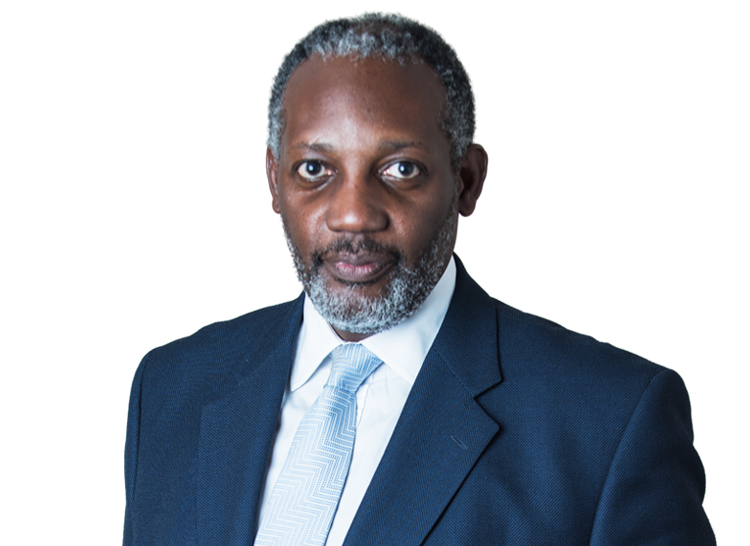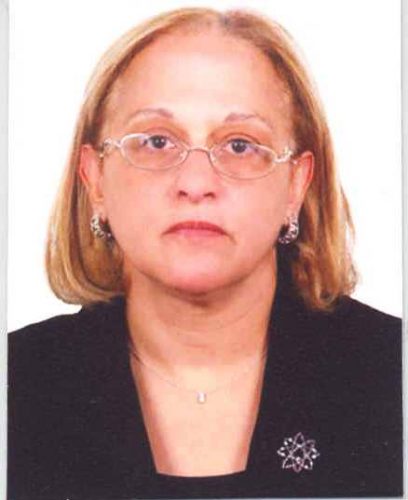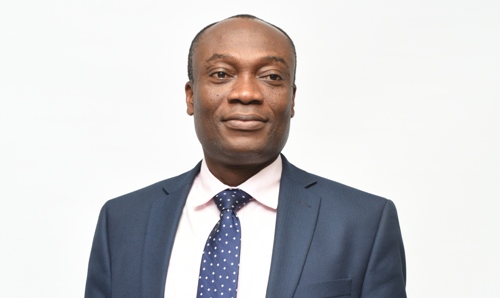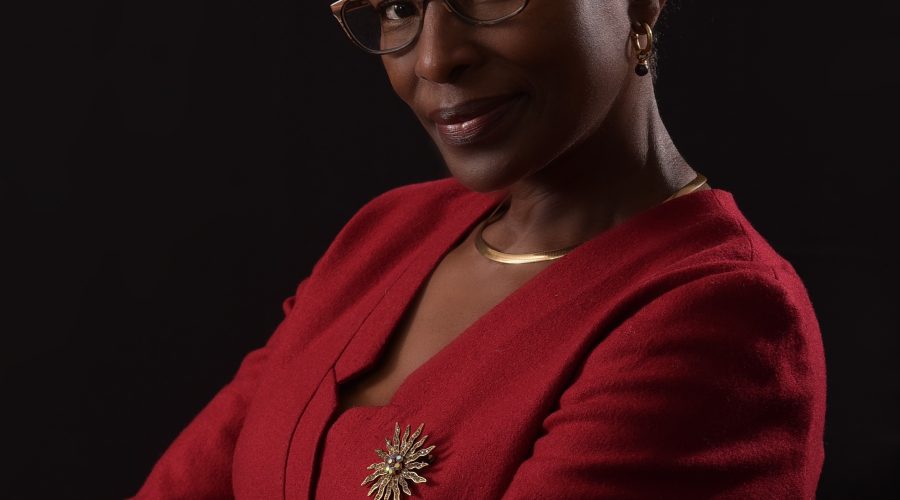Name of arbitrator:
Harry Matovu, QC
Education, awards and selected publications:
Education and Qualifications
- BA (Hons) in Classics, Oxford University
- Dip.Law, University of Westminster
- Called to the Bar by the Inner Temple (1988)
- Queen’s Counsel (2010)
- Master of the Bench, Inner Temple (2012)
- Member, London Court of International Arbitration and LCIA African Users’ Council
- Member, International Bar Association, England and Wales Commercial Bar Association and London Common Law and Commercial Bar Association.
Selected Papers
- Issues of Bias in the Arbitration Process, Paper delivered at Arbitration London, the London International Arbitration Conference for West Africa, 4-6 September 2013
- The OHADA Arbitration Regime – An Assessment, Paper delivered at the ICAMA Arbitration Round Table, Abuja 26-27 May 2014
- Valuing Claims, Presentation delivered at the CDR Winter Arbitration Symposium, London 19 February 2015
- The Future of Legal Practice in Nigeria – Regulation and Discipline in the Legal Profession, Address delivered to the SPA Ajibade & Co 8th Annual Business Luncheon, Lagos, Nigeria, November 2015
- Tribunal Bias in African Arbitrations, Paper delivered at the ICC Africa Regional Arbitration Conference, Lagos 19-21 June 2016; published in European International Arbitration Review, Vol. 5:1, 31-51.
- Investor Protection, Resource Nationalism and the Courts, Keynote Address to the African Law and Business Summit, London, November 2017
Countries qualified to practice:
Courts and Tribunals of England and Wales, and arbitrations worldwide
Language(s):
English
Name of law firm or institution:
Brick Court Chambers, London
http://www.brickcourt.co.uk/our-people/profile/harry-matovu-qc
Please provide a brief background of yourself and experience working on disputes in Africa.
My family is from Uganda and my late uncle, Godfrey Binaisa QC, was Attorney-General of Uganda, and briefly President in the years following the removal of Idi Amin. I have a wide-ranging commercial litigation practice, including (but not limited to) energy and natural resources disputes, civil fraud and asset recovery, insurance, banking and finance, and issues of private and public international law. I am also instructed regularly in international and domestic commercial arbitrations.
I have been lucky enough to be instructed in a number of very high-profile cases in the English courts over the years, and I have been involved in a number of matters relating to Africa. One of the most memorable of such cases to come before the English courts was litigation arising out of an attempted coup in 2004 against the Government of Equatorial Guinea. This raised novel and important issues of public and private international law and went all the way to the House of Lords before it settled. It was listed by The Lawyer magazine as one of the top 20 cases in the English courts for 2006, 2007 and 2008.
In addition, I am engaged as counsel in a long-running and very substantial international energy dispute before the Courts of Tanzania, having been granted special rights of audience by the Chief Justice of Tanzania to appear before the High Court and Court of Appeal of Tanzania. The case arises out of a power project in that country, and it is perhaps the largest and most high-profile dispute that has come to trial before those Courts.
Beyond these cases before the English and Tanzanian courts, I have been instructed as counsel and appointed as arbitrator in several major and high-value international arbitrations concerning African business and investments. They concern a variety of sectors and subject-matter, including energy, mining, telecomms, media, construction and transport. Given the confidentiality of arbitrations, I am unable to describe these disputes further.
What do you consider as the biggest challenge facing international practitioners working on disputes in Africa?
A lot is said about the increasing cost and complexity of international commercial arbitration. However, the issue of lack of diversity is a running sore in international arbitration in general and African arbitration in particular. In the 2018 survey of international arbitration by White & Case and Queen Mary College, London, it was reported that less than a third of respondents believed that progress had been made over the past 5 years on geographic, age, cultural and ethnic diversity.
Lack of diversity of experience and argument diminishes the quality of decision-making, whether in the boardroom, policy forums or in court or arbitration. For several years, there has been a concern that African lawyers are being crowded out of their own market and overlooked for appointment as arbitrators on significant commercial and investment treaty arbitrations emanating from Africa. The major arbitral institutions, such as the LCIA and the ICC, have recognised the need to encourage diversity, but there is a limit to what they can do by way of arbitral appointments, since arbitrators are appointed principally by the parties to a dispute and presiding arbitrators are often appointed by the party appointees. The problem is that the parties to arbitrations, including African entities, are reluctant to widen the net in the appointment of counsel or arbitrators. They see this as a risk. Such an approach is perhaps understandable, but it is illogical. In commercial arbitration, there is no reliable data as to the likely approach that any arbitrator, however experienced, might take to a given case, or how successful any counsel may be in arguing a particular case before a tribunal. Furthermore, in commercial disputes, it is plainly desirable to have an understanding of, and sensitivity to, the social and business context in which contracts and business decisions are made and performed. However, a lack of diversity in counsel and tribunals may deny the parties the benefit of such understanding for the just resolution of their disputes. African parties and foreign investors need to understand that diversity in arbitration is in their own interests.
What impact will Brexit have on UK-Africa relations on foreign investment and what advice will you give foreign lawyers working or intending to work on disputes in Africa?
One of the major arguments advanced in favour of Brexit is that it will enable the UK to strike free trade deals around the world. The UK Government is on record as saying that it wishes to build on its strong historic links with many African countries in order to help to develop the business environment in African economies and to boost FDI and private sector investment. It recognises the importance of Africa and its young and fast-growing population as a huge engine for economic growth in the future. The UK Government has signaled that post-Brexit it will be looking at bilateral and multilateral relationships with African states and supranational institutions such as ECOWAS.
This brings opportunities for foreign disputes lawyers. Investment treaty disputes are unlikely to diminish as the UK, in competition with the EU and other states, seeks to negotiate free trade agreements and treaties with African states. Increased UK foreign investment will also bring with it the potential for commercial disputes governed by English law. Competition lawyers may also be in increasing demand as rules and regulatory regimes are developed and expanded to promote free-trade business environments for domestic and cross-border trade across African states. In short, the UK’s ambition to deepen its partnerships with some of the world’s fastest-growing economies after Brexit is likely to bring opportunities in Africa for transactional and disputes lawyers alike.
With the rise in the use of third-party funding, how can Africa benefit from the funding arrangement and what in your opinion should funders be looking at before investing in disputes in Africa?
This is an area which is ripe for development, and I am actively involved in discussions to take this forward.
Third-party funding has grown rapidly and it is now an established, and welcome, part of the disputes landscape. The market has also grasped that third-party funding is valuable, not only for parties who would otherwise be unable to afford to litigate or arbitrate a dispute, but also for parties who have the funds to do so but do not wish to tie up their capital in such disputes or who wish to take the disputes risk or costs off balance-sheet. African businesses, which seek to develop new markets or to grow market share rapidly in the economies where they operate, are likely to be particularly keen to use their capital for growth rather than for disputes. Similarly, African governments with fiscal constraints and pressing calls on their revenues are likely to want to devote their budgets to important policies and social projects rather than commercial or investment treaty disputes. Litigation funding may assist both to lay off the cost of disputes and to free up their budgets and capital for growth and capital projects.
However, litigation funding for African disputes is hampered by the fact that funders view such disputes as high-risk investments, and they price their funding accordingly. This is particularly the case with disputes involving states whose regimes or fiscal or other policy imperatives may be subject to change at any time. At the same time, African states and parties are unwilling to pay a significant percentage of their potential recoveries from disputes to litigation funders in return for funding. It appears that there is either no dialogue on these differing viewpoints between funders and potential parties or it is a dialogue of the deaf. Whatever the position, the market for litigation funding in Africa is dislocated and undeveloped, and the opportunities that it offers for parties and for states have not been taken. This is a shame.
There needs to be a more open conversation between litigation funders and their potential markets in Africa. Funders need to make a more concerted effort to explain what they offer directly to members of African governments and African and foreign investor business communities (not just to law firms with African disputes), and also the basis on which they price their funding for African disputes. In engaging in such a discussion, they should be ready to challenge their own views of risks that they perceive, how any risks can reasonably be mitigated and whether the pricing of their funding products is, in fact, justifiable or whether it can be revised or restructured in any cases. Such a discussion will serve to promote the growth of the litigation funding market in Africa, whose potential benefits for all parties are very substantial. And litigation funding, once developed, will also help to increase the use of international arbitration and promote diversity in the arbitration market in Africa. This is a virtuous circle in which all stand to gain.
As a leading arbitrator, what advice do you have for young arbitration practitioners who see you as their role model?
There is no substitute for hard work. Young practitioners must work hard to develop a sound understanding of the foundations of modern arbitration law which are common across the world and which have expression in international documents such as the UNCITRAL Model Law and Rules and the New York Convention for the enforcement of arbitral awards. It is also vital to keep abreast of current developments in the law and issues and controversies in arbitral law and practice. This should be possible with the various online legal resources available. It is an investment in time, but it pays dividends.
Young practitioners should also strive to become active members of the arbitration community. This is most easily done by attending conferences, where possible, and participating in programmes offered by established arbitral institutions, such as the ICC, LCIA and Chartered Institute of Arbitrators, all of whom have Young Practitioners’ Forums and Groups. This will offer important opportunities to meet and discuss views and practical issues with experienced practitioners, and to develop a better understanding of the world of arbitration in practice. One would hope that law firms would be willing to invest in their young practitioners by sponsoring and funding them to attend such conferences, and many do indeed see the value in this.
Finally, young practitioners should not set themselves up too early as arbitration specialists. It is important to gain experience before courts and other tribunals. I regard my experience of advocacy and the handling of cases and procedural matters before the courts as a vital complement to my international arbitration practice. In my experience, one can gain confidence and develop one’s skills as an arbitration practitioner from having a direct understanding of the advantages and disadvantages of both court and arbitration procedure and advocacy in practice.
How can arbitration in Africa be improved?
I repeat my comments above regarding the need for diversity and the opportunities afforded by litigation funding. There has been a proliferation of arbitral institutions across Africa in recent years, but despite the enthusiasm with which they have been established, international arbitration is still in its infancy in Africa. This is partly because African parties are still reluctant to embrace diversity in their appointments of counsel and tribunal and in their choice of seat or venue for arbitrations. It is important to continue to challenge such attitudes in the African business community.
The other way in which arbitration in Africa can be improved is by ‘bringing it home’ through the development and implementation of arbitration-friendly laws and the conduct of arbitrations in Africa. This will develop the arbitration market in Africa and the skills and experience of African practitioners and administrators. Of course, it takes two parties to agree a venue for arbitrations, and the choice of venue is likely to be influenced by the facilities available for hearings. Some countries, such as Rwanda, have sought actively to promote arbitration in their jurisdictions by ensuring the availability of facilities and infrastructure to support the conduct of hearings and the expectations of modern international business community. Other governments, however, have not maintained their support and arbitral institutions in their countries have languished as a result. As I have written in the past:
“Arbitration is both a creator and a creature of economic growth and development. But political commitment is required from African governments in order to realise the full potential that an established arbitration system can bring as an engine and facilitator of economic development. Unfortunately, national and regional arbitration initiatives … have been held back by a crippling lack of resources and insufficient political commitment.”
That still holds true in many countries, even in those jurisdictions where admirable progress has been made in the modernisation of arbitration laws. It is important, therefore, to continue to emphasise to politicians and policy makers that arbitration is indeed a creator of economic growth and development, that it should not be seen as a competitor of the courts (which already labour under huge workloads and substantial backlogs), and that it merits proper investment in practical resources. Arbitration in Africa has made great strides, but there is much more to do and the opportunities are exciting.





